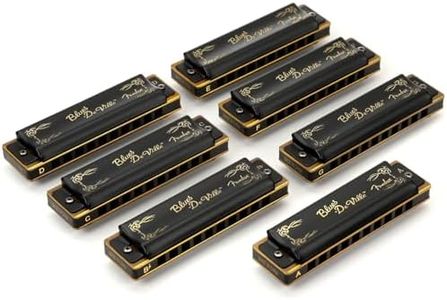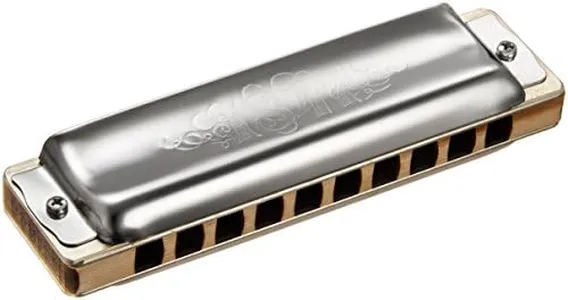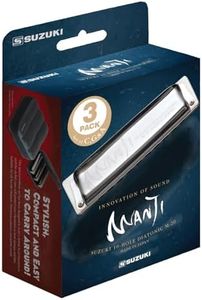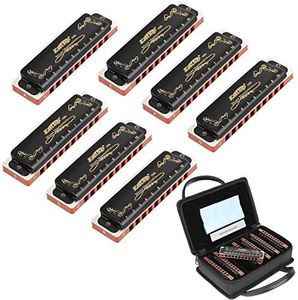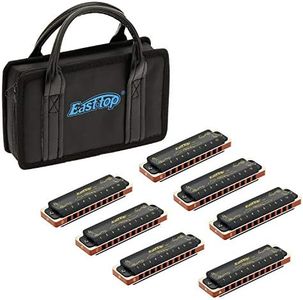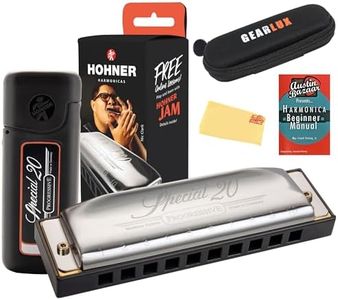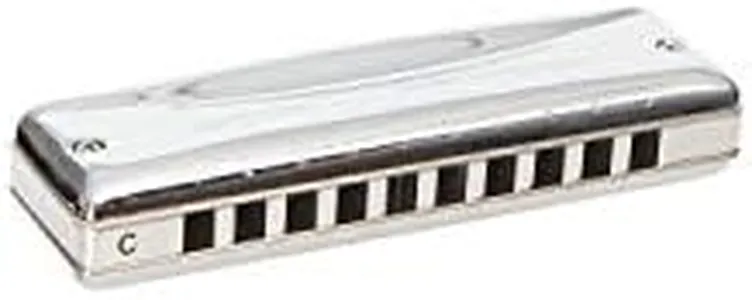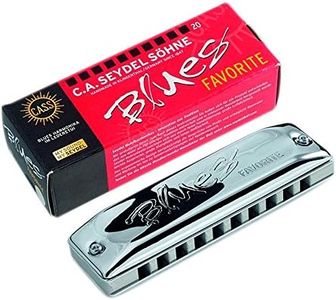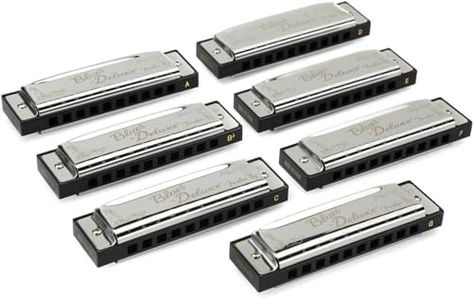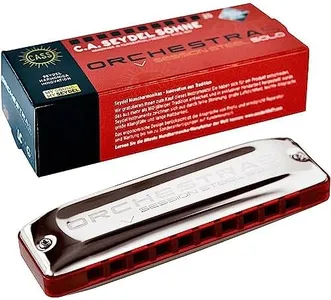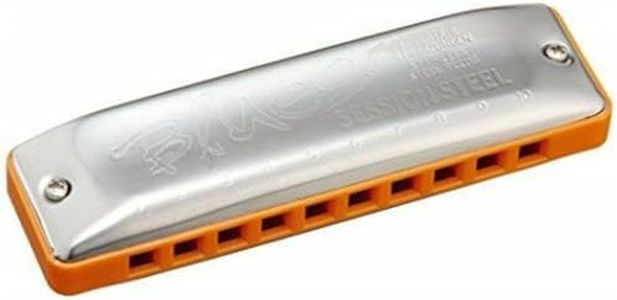10 Best Beginner Harmonicas 2026 in the United States
Our technology thoroughly searches through the online shopping world, reviewing hundreds of sites. We then process and analyze this information, updating in real-time to bring you the latest top-rated products. This way, you always get the best and most current options available.

Our Top Picks
Winner
Fender Blues Deville Harmonica, Pack of 7 with case (Keys C, G, A, D, F, E, B Flat)
Most important from
63 reviews
The Fender Blues Deville Harmonica pack is a great choice for beginners looking to explore the world of harmonicas. This 7-pack includes harmonicas in multiple keys (C, G, A, D, F, E, and Bb), allowing users to experiment with different sounds and styles. The use of phosphor bronze reeds contributes to a full, rich tone, while the molded PVC comb ensures comfortable playability, making it accessible for novices. Its traditional shape and sleek black satin covers add an appealing aesthetic, enhancing the experience.
A significant advantage is the included hard plastic case, which helps keep the harmonicas organized and protected, an essential feature for anyone just starting out. The compact size (11.42 x 7.48 x 3.54 inches) and lightweight design (1.75 pounds) make it easy to transport and practice anywhere.
There are some considerations to keep in mind. Certain users might find the sound quality slightly lacking compared to higher-end models. Also, for complete beginners, having seven harmonicas might feel overwhelming at first, as it presents a steep learning curve in terms of mastering different keys and techniques.
Most important from
63 reviews
SEYDEL Blues Classic 1847 Harmonica C
Most important from
115 reviews
The Seydel Harmonica (Blues 1847 CLASSIC C) is a diatonic harmonica designed for blues music. It features a waterproof maple comb, which ensures durability and a pleasant tone. The stainless steel reeds and cover plates contribute to its robust construction and consistent sound quality. German silver reed plates also add to its durability and performance.
With its key in C, it is suitable for beginners who are often advised to start with a harmonica in this key. Seydel, a brand with over 160 years of experience, promises a high-quality instrument that meets traditional demands and is built for those with high ambitions. This harmonica might be a bit advanced for absolute beginners due to its professional-grade materials and construction.
Additionally, its price point may be higher compared to other beginner models. Beginners looking for a reliable, high-quality harmonica that they can grow with might find this an excellent choice, though those just starting out may want to consider if they need something simpler and more affordable initially.
Most important from
115 reviews
Suzuki Manji 3Piece Harmonica Set Keys: C, G, A (M20-MP)
The Suzuki Harmonica (M-20-3SET) is a suitable option for beginners, offering a classic diatonic 10-hole design, which is a standard choice for many beginner harmonicas. This particular set includes harmonicas in the keys of C, G, and A, which are versatile and commonly used in various music genres. The product is thoughtfully crafted in Japan and has been available since 2015.
The harmonica has a compact size of 4.13 x 4.53 x 1.57 inches and a lightweight design at 9.9 ounces, making it easy to handle and transport for beginners. The model's association with the renowned Suzuki brand, known for quality musical instruments, suggests reliable performance. The availability in 14 different keys is a plus for those looking to expand their collection or experiment with different musical tunings as they advance.
This set's classic style and silver-cream color give it a timeless appearance. Beginners seeking a well-rounded set of harmonicas to start their musical journey will find this a practical and enjoyable choice.
